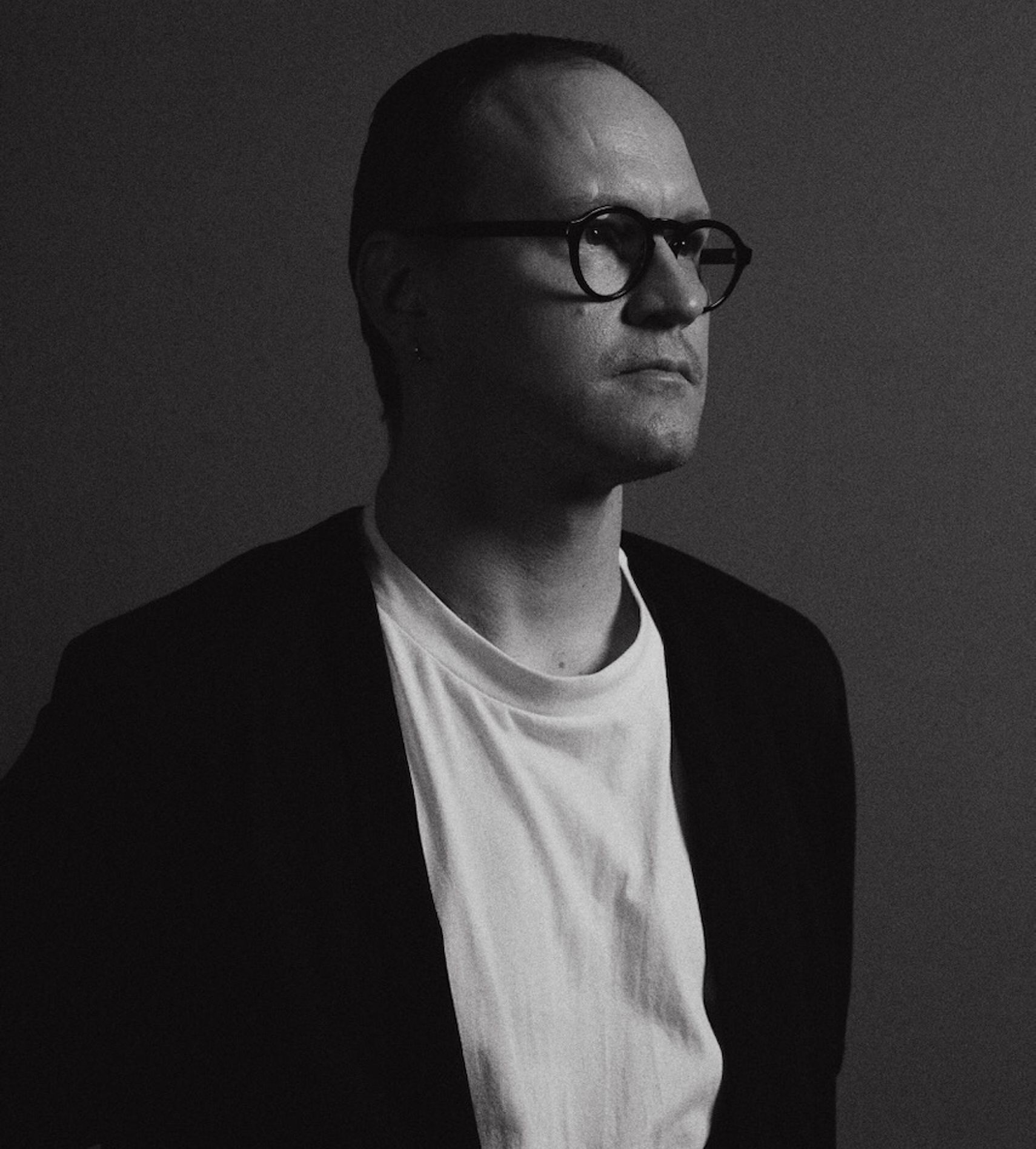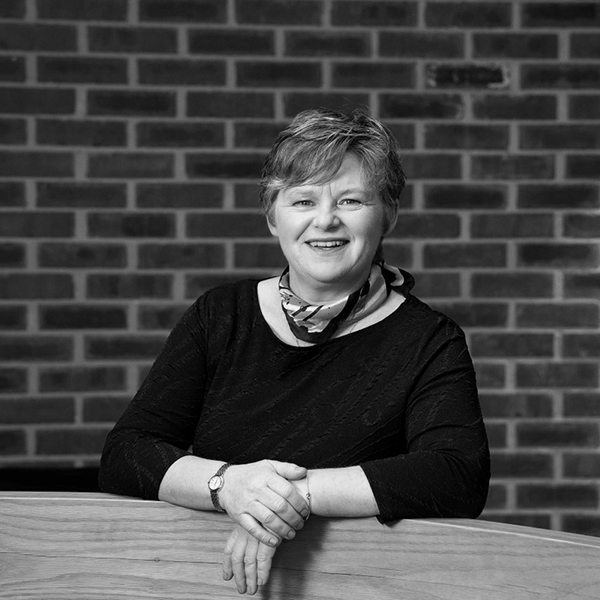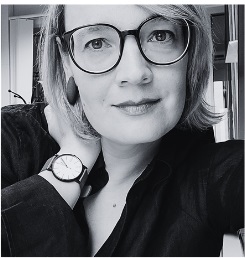Speakers:

Leona Achtenhagen is the Director of the Media, Management and Transformation Center at Jönköping International Business School, Sweden. She is also editor-in-chief of the Journal of Media Business Studies (Taylor & Francis). She has a long experience of teaching entrepreneurship at masters and doctoral level, as well as in practitioner workshops. She has designed JIBS’ master program in Strategic Entrepreneurship, for which she has also developed a number of pedagogical tools. The program’s success played a major role in achieving JIBS’ accreditation. Leona Achtenhagen’s research focuses on entrepreneurship in different contexts.

Vejune Zemaityte is a Research Fellow in Cultural Data Analytics at Baltic Film, Media and Arts School in Tallinn University. She uses data analysis and visualisation techniques including network analysis to study global screen industries. Vejune researches film production and distribution, film festivals, public service television, and historical newsreels. She is particularly interested in cultural and thematic content diversity and gender diversity in media production and distribution. Her work is interdisciplinary, data-driven, and industry-facing, often performed with large research teams and in collaboration with industry partners. Vejune engages across multiple international projects: CRESCINE, Public Value of Open Cultural Data, CUDAN, and FILMEU.

Sean Branagan is a so-called serial entrepreneur, interactive marketer, educator, investor, and evangelist for innovation and startups. Aside from being Director of the Center for Digital Media Entrepreneurship at Syracuse’s prestigious Newhouse School, Sean is Chief Instigator of Media-Nxt.org, founder of Student Startup Madness at SXSW (a national collegiate startup tournament), the founding advisor of student-led 44NewVoices.org, and leader of the SXSW Pitch internship program that has brought more than 150 Newhouse students to the SXSW festival over the last 9+ years. Professionally, Sean started and is Chairman of Scrappy Capital, a seed fund for rising tech cities in the US. He sold an Internet media company to a public company in 1999, was founder and president of a technology marketing firm, and started several other tech and media ventures. He holds board and advisory board positions with several early-stage tech companies, and serves on a number of charitable boards.

Alan R. Milligan, White Rabbit Founder & CEO. As a producer, co-producer and executive producer Alan’s movies won awards in Cannes (“Rams” – Un Certain Regard), Venice (“Flapping in the Middle of Nowhere” – Critic’s Award) Gothenburg (“Letter to the King” – Dragon Award) and have also been nominated in Berlin, Toronto and Busan with more than 100 other awards and nominations. As a software entrepreneur Alan co-created MCIS which became the safety standard for the $30Bn chemical tanker industry. MCIS was sold to Heidenreich Innovation (US) in 2008. Alan is now challenging the technology giants and platform subscription models that have created an unsustainable movie industry, frustrated fans and given less diversity and access to content. White Rabbit builds bridges between audiences and filmmakers with direct and frictionless distribution to fans, immediate settlement for participants and access to data for rights holders. With a platform agnostic approach we can reach more than 5 billion people on social networks and messaging apps, through our communities, fans and followers. Alan holds an MA in International Relations and International Business.

Henrik Roonemaa is an Estonian tech journalist who has been covering the latest developments and trends in the field of technology for over two decades. He was the co-founder and publisher of Geenius.ee, a popular online platform that provides news, reviews and podcasts about tech and startups in Estonia and beyond. For more than a decade, Henrik was also the host of two radio shows and podcasts, Digitund and Restart, where he discussed various topics related to technology, innovation, and entrepreneurship with guests and experts. He has a background in economics and journalism, and has worked as a reporter, editor, and manager for several media outlets, including the daily newspaper Postimees and the tech magazine Digi which he also cofounded. He is passionate about technology and its impact on society, culture, and business. Since his exit from Geenius in 2022, he has used the time to spend more time with his family and learn to play tennis somewhat properly but he complains it is a lot harder than it looks.

Stefan Melesko is an Associate Professor, PhD. in Media Economics, at the International Business School at Jönköping University. He has moreover been a visiting professor at the Kalmar campus of the Linnaeus University. He has had a long experience as a chief executive in several media companies-Dagens Nyheter, Saxons and Bonnier Business Press before he started his academic career. He has held several positions as a non-executive board member in media and media related companies. He is currently a frequent contributor/columnist in the trade press. He has also been a commentator on the radio on media economics questions. He is now focusing on the study of the restructuring of the Swedish regional press from particularly an ownership standpoint considering not the least the technological developments.

Indrek Ibrus is Professor of Media Innovation at the Baltic Film, Media and Arts School (BFM) of Tallinn University. He holds a PhD from London School of Economics and Political Science (LSE) and a MPhil from the University of Oslo. He was the initiator of the Crossmedia Production MA programme at BFM and currently curates the BFM doctoral programme. He is a co-editor of two peer-reviewed journals. First, Cultural Science Journal is a multidisciplinary journal dedicated to the study of cultural systems. Second, Baltic Screen Media Review, is dedicated to audiovisual cultures around the Baltic Sea. He has edited also special issues of the International Journal of Communication and International Journal of Cultural Studies. Together with Carlos A. Scolari he co-edited Crossmedia Innovations: Texts, Markets, Institutions, published by Peter Lang in 2012. His more recent edited anthology is Emergence of Cross-Innovation Systems: Audiovisual Industries Co-Innovating with Education, Health Care and Tourism (Emerald, 2019). Most recently he published a co-authored monograph On the Digital Semiosphere: Culture, Media and Science for the Anthropocene (co-authored with John Hartley and Maarja Ojamaa; Bloomsbury 2020). His ongoing research project focuses on public value production in datafying media industries, especially with regard to data technologies such as Semantic Web and blockchain.

Cathrin Bengesser is Assistant Professor for Digital Media Industries at Aarhus University’s Department of Media and Journalism Studies. She researches the development of the European streaming and film market as well as transnational audiences and European media policy. She is PI on the AUFF-funded (2021-24) project “EUVoD” that studies the impact of media systemic differences on the transformation from broadcast to VoD markets in Europe. She is a co-investigator in the Horizon Europe project “Crescine” (2023-26), which examines how the competitiveness of film industries in small markets can be increased. She recently contributed a study on the business models of European production companies and streaming services to the “Study on the implementation of the provisions of the revised AVMSD” for the EC’s Directorate-General for Communications Networks, Content and Technology. She is the co-director of Aarhus University’s Centre for Transnational Media Research and Chair of ECREA’s Television Section.

Dagmar Mäe, is an Entrepreneur, a BFM alumni and a mother, who loves discovering and understanding new ideas, constantly seeking to achieve better understanding of the world around her. With a master’s degree in Crossmedia production, she has been in the creative industries for almost 15 years. Her experience has made it possible for her to understand the creative industry as well as creative entrepreneurship very well. After years of working in the film industry around the world, she decided to work for an Ad Tech startup NEXD and from there on she became an entrepreneur. Her co-founded company, Votemo, has created a platform that gives broadcasters, such as hybrid virtual event organisers, streamers and TV channels new ways to get and retain audience attention, but also offers them new ways to monetise audience interaction.

Vivian Loonela is the Head of the Commission Representation in Estonia since January 2022. Previously she worked as the Commission’s Coordinating Spokesperson for the European Green Deal, leading the Commission’s communication on this priority, in the areas of climate, energy, environment, oceans, transport and cohesion. Before, she was the Foreign Policy and Cybersecurity Advisor in the Cabinet of Andrus Ansip, Vice-President for the Digital Single Market. She has been a member of several EU-U.S. negotiation teams on justice and home affairs, the Secretariat-General’s rule of law and economic governance teams, and contributed to efforts to develop justice and home affairs cooperation with Ukraine and within the Eastern Partnership. Before joining the Commission, she was an Estonian diplomat, including a posting at the Estonian Permanent Representation to NATO. Ms Loonela holds a law degree from the University of Tartu in Estonia.

Sten-Kristian Saluveer is a Media and Technology Visionary, Strategist and an Entrepreneur, pioneering a co-production memorandum with the governments of South Korea and Estonia, and genre film co-productions between South Korea, Japan, and Europe. He also created the first genre film festival HÕFF in Estonia, a media technology & startup innovation hub Storytek in North Eastern Europe, co-developed the future strategy of European Film and Media and Technology sector for Vice President Ansip of the European Commission, as well as devised Startup Estonia 2.0 strategy for Estonian government. He also set in motion a Horizon 2020 backed investment vehicle STADIEM to support film and media innovators in Europe. Currently, he is in the Advisory board at the Future Hubs of the Flemish Public Broadcaster VRT. He is also the Strategic Advisor and head of the innovation track – NEXT – at the world’s flagship film industry platform – Marche Du Film of the Festival de Cannes as well as Chief Curator of the Picture This conference in Copenhagen, produced by the National Film School of Denmark.

Heritiana Ranaivoson, Professor and Senior Researcher, imec-SMIT, Vrije Universiteit Brussel Heritiana Ranaivoson is Professor and Senior Researcher at imec-SMIT-VUB in the Media Economic & Policy Unit since 2010. Previously he got a PhD in Economics and was associate researcher at Mines ParisTech. Having led several research projects at international, national and local levels, funded by public (European Commission and Unesco) or private (Google) organizations; he is currently coordinator for the WEAVE (FWO) ALGEPI (understanding ALGorithmic gatekeepers to promote EPIstemic welfare) research project and Work Package leader for both EU Horizon Europe projects Fair MusE (Promoting Fairness of the Music Ecosystem in a Platform-Dominated and Post-Pandemic Europe) and CresCine (Increasing the international competitiveness of the film industry in small European markets). He has published extensively in the fields of cultural and media diversity, media innovation, media policy, audiovisual platforms, and the role of recommender systems in cultural industries. His latest co-edited book is ‘European Audiovisual Policy in Transition’ (2023) at Routledge.

Katrin Pihor is the Head of the Research and Development Policy Department of the Ministry of Education and Research of Estonia. Under her leadership the department oversees the development and implementation of the Estonian strategy on Research, Development, Innovation and Entrepreneurship (RDIE). With a background in economy, she has more than 15 years experience in policy analysis and evaluations, while working as a policy evaluation expert and Member of the Board of the Praxis Centre for Policy Studies, one of the leading think tanks in Estonia. Previously she has been working as Deputy Director of the EuroCollege, University of Tartu, lecturing on EU policies. Throughout her career she has been an advocate for evidence-based decision-making, fostering collaborative approach, promoting partnerships between researchers, policymakers, and stakeholders to drive meaningful change and ensure that scientific knowledge informs policy development and implementation in a most effective way.

Helen McGuirk (PhD, MA, BComm.) is Head of the Hincks Centre for Entrepreneurship Excellence, part of the School of Business at Munster Technological University (MTU) in Ireland. Her work centres on supporting entrepreneurship in all its forms at regional, national, and international levels through research, education, and training. She is an elected member of the University’s Academic Council, the Research Council and represents MTU on the Governments ‘Rural Future Higher Education and Research Network’. Her research is published in peer reviewed journals and contributes to policy and industry focused reports and studies. Helen mentors early career researchers, PhD candidates, and Chairs the peer learning community for entrepreneurship at MTU. She has many years experience as an entrepreneur and project manager in Ireland and Australia.

Külliki Tafel-Viia is the Chief Knowledge Management Officer at the Ministry of Economic Affairs and Communications. She is responsible for developing knowledge management system and services and enhancing partnerships with universities and research institutions to support smarter and more science-based policymaking. Previously, Külliki has been the head of knowledge transfer at Tallinn University where she built the research and development umbrella brand EXU (Enterprise x University) to enhance the university’s collaboration with private, public and third sector. Also, Külliki is the host and editor-in-chief (EIC) of two monthly talk-shows: Strategy Academy focusing on the future developments and challenges of various fields of Estonian economy, and EXU Academy which exhibits collaboration examples between university and companies and/or public sector. With a researcher’s background Külliki has 20 years of experience in managing and implementing R&D projects in various fields from innovation, education and entrepreneurship to culture and creative industries. She has also extensive training and mentoring experience in service design, strategic planning and commercialization. She is also a design manager at the Design Masterclass program.

Ulrike Rohn is Professor of Media Management and Economics at Tallinn University, Estonia, where she works at the Baltic Film, Media and Arts School (BFM). She received her PhD from Friedrich Schiller University Jena, Germany, for a research project on international media strategies. As part of this project, she has also worked for media companies in India and Japan, as well as had a visiting position at the Communication University of China, in Beijing. She was also Visiting Scholar at The London School of Economics and Political Science (LSE) and Jönköping International Business School (JIBS), Sweden. She received her MA from Freie Universität Berlin and also studied at Uppsala University, Sweden, as part of her degree. Ulrike Rohn co-edited the book “Media Management Matters: Bridging Theory and Practice” (2020) with Tom Evens, and is currently working on the edited volume “The Handbook of Media Economics” together with M. Bjørn von Rimscha and Tim Raats. Ulrike Rohn has initiated and led various nationally and internationally-funded research projects. She leads the Horizon2020 project ScreenME on screen media entrepreneurship (2019-2023), and she co-initiated the HorizonEurope project CRESCINE on the international competitiveness of the European film industry (2023-2026). At Tallinn University, she co-leads the Centre of Excellence in Media Innovation and Digital Culture (MEDIT). Ulrike Rohn has served as President of the European Media Management Association (emma) (2016-2021).
Ulrike Rohn also hosts a podcast on entrepreneurship in the media.
Find the first season of the ScreenMe podcast here: https://open.spotify.com/show/20gDh8w3gVeFFD0N9fjs1i

